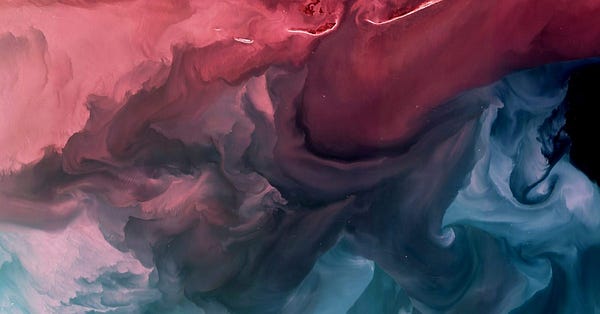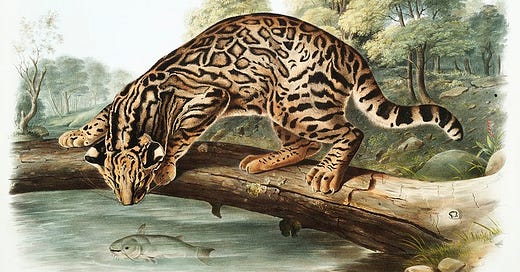🌱EcoComm Fieldnotes: Week of February 25, 2021
The Origin story of Science Writers + Why write about climate change? + Frogs, Elk and Snowmelt Sounds + Environmental Communication Animation + More!

Hi everyone, welcome back to Wild Ones, a bi-weekly digest by me, Gavin Lamb, about news, ideas, research, and tips in ecowriting and environmental communication. If you’re new, welcome! Today, in my midweek update, I share my ‘fieldnotes’ in environmental communication, with ideas, tips and tools I’m exploring at the moment. You can read more about why I started Wild Ones here. Sign up here to get these digests in your inbox:
📚 What I’m reading
These are a couple interesting articles I came across this week related to environmental writing:
On the Origin of Science Writers from the OpenNotebook. “How do people get started in science writing?” This is a really fascinating project collecting the origin story and advice for getting started in science writing from dozens of accomplished writers covering science. Here is an exerpt from the origin story of one of my favorite climate writers working today, Meehan Crist:
Soon after graduate school, I turned toward writing about the climate crisis. This is a science you can’t unsee, and writing about the most complex threat to human civilization on this planet still feels compelling, enraging, and urgent. My advice for people breaking into science writing: Write about the questions/discoveries/histories you find most compelling. Your fascination will enliven the writing and can help spark an editor's interest.
Why Write? Toward a style for climate change? by Maxwell Sater in Public Books. Here are a few excerpts from the piece that stuck with me:
“Climate-change writing tends to be characterized by an urgency, with no obvious outlet. It is haunted by its own futility.”
“In my experience, climate-change writing is a distinctly unpleasant genre, with an emotional range that encompasses indignation, abjection, and grief, with occasional but diminishing hope.”
“Precisely because we may be aware of the unevenly distributed injustices of the fossil-fuel economy and politically committed to ending them, we require a literary criticism of climate-change writing…Which is to say we need writing about writing about climate change that asks: What are the conventions of this coalescing genre?”


🎧 What I’m listening to
Sounds from the wild: frogs, elk and snowmelt. From The Wild with Chris Morgan. Drawing from recordings made by acoustic ecologist Gordon Hempton, host Chris Morgan narrates explanations of animal behavior and communicative meaning behind the sounds of wildlife and natural places.
👀 What I’m watching
“Filmmaker Ciara Lacy documents Jamaica Heolimeleikalani Osorio, a Kanaka Maoli wahine poet, activist and academic, and her continued work towards justice for Hawaii’s native population.”
🔍 Tools & Resources I’m exploring
SciComm: Animation training for Scientists - A brief introduction, by Tom Ovenden. I recently discovered Tom Ovenden, a PhD researcher at Stirling University and Forest Research, and his youtube channel where he offers animation training for science/environmental communication. Here’s a neat video he made explaining a chapter from his PhD dissertation drawing on the techniques he teaches about on his channel.
💬 Quote I’m thinking about
“I think that all of the momentous events of our lives should be observed closely by a wide range of people. It is no longer sufficient for us just to send representatives of law enforcement agencies and journalists - or the State Department of government or whatever it is – to witness these things. I am deeply suspicious of a government that cuts its artists, for example, its dancers and its painters, as well as its intellectuals, its scholars, off from these kinds of experience.”
– Barry Lopez, in an interview with NPR’s Terry Gross about his essay A Presentation of Whales (pdf).
✏️ Writings from my desk
The Story Behind Thomas Edison’s 1906 Surf Film ‘Hawaiian Islands’: Historians consider Edison’s film to contain the oldest footage of surfing ever captured.
A New Genre of Self-Help for Transforming Climate Grief into Climate Action
Thanks so much as always for your interest in my work, and if you found this digest useful, please consider sharing with others who might find it interesting too😊 I'd also love to hear from you. Leave a comment to let me know what you think about this digest:)




